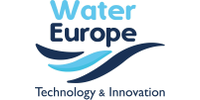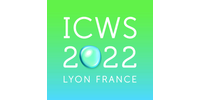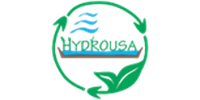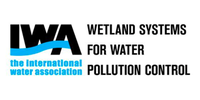Wetlands play an important role in protecting freshwater from pollutants, pathogens, excessive nutrients, metals, and sediments. Wetlands can also provide effective protection against storms and can contribute greatly to soil stabilization, preservation of biodiversity, and wildlife habitat. Wetlands can be often found near rivers and in deltas, which are the same places where most urbanization occurs.
The increased demand for land by urban areas is causing water levels in wetlands and other wet areas to decrease globally. Nevertheless, the potential for creating wetlands – constructed wetlands - in and around cities has received more attention, following the disappearance in recent decades of large areas of wetland and therefore natural habitats and biodiversity because of urban expansion and land drainage.
Constructed wetlands seen as Nature-based Solutions (NbS) are specifically designed systems that can mimic natural wetlands by offering various features such as surface flow wetlands, which resemble natural wetlands, e.g. characterized by flow through a media bed in which plants are placed. NbS, as constructed wetlands, can treat domestic wastewater in an efficient and cost-effective way, improving surface water quality, purifying urban runoff and facilitating the removal of of a number of contaminants.
Nature-based Solutions, as a tool for restoring wetlands on a large scale in urban areas, can become the best ecosystems model to address the most pressing challenges of our time, such as the threat of water scarcity as well as the impacts of extreme weather events, such as the shocking heat waves in cities and towns.
The benefits of constructed wetlands are ideally evident, but many challenges to their implementation exist, such as societal acceptance, compatibility and integration with the existing infrastructures, availability of land, legislative barriers, erraticism of investment and policies, and finally the cost of maintenance.
The 17th International Conference on Wetland Systems for Water Pollution Control 2022 is part of the IWA Specialist Group "Wetland Systems for Water Pollution Control" conference series, which is a bi-annual conference series that serves as a global forum for discussion and knowledge sharing on the state of the art in scientific and practical development and implementation of natural and constructed wetlands and other Nature-based Solutions to provide improved water quality and other co-benefits and ecosystem services.
Together with the HYDROUSA project and INRAE/INSA, Water Europe is organizing a clustering workshop (Water Projects Europe) as part of the IWA Conference that intends to contribute to addressing the above-mentioned issues, by opening a discussion board composed of experts bringing real-life experience from different projects and initiatives. This edition of WPE highlights initiatives and projects on NBS as well as the participation of the representative of local government and utility.
SOLU-BIOD
COST Action Circular City
FIT4REUSE
NICE
MULTISOURCE
HYDROUSA (www.hydrousa.org) is an Horizon2020 EU funded project that aims at providing innovative solutions for water and wastewater management in decentralised water-scarce areas by closing water loops and enhancing the agricultural and energy profile of these areas. HYDROUSA goes beyond the current water management practices by adopting innovative, nature-based water management solutions characterised by low energy footprint for recovering different types of non-conventional water sources.
Starting from the critical mass of knowledge built up by the HYDROUSA project, this panel will discuss solutions and barriers that can foster or hinder NbS as a tool for restoring and creating wetlands in urban and rural areas for efficient water management and support the achievement of the objectives of the EU Green Deal and the Zero-Pollution Strategy. The focus will be on:
- Promote resource recovery and circularity in the water sector by the implementation of NbS and the integration of green with grey infrastructure
- Enhance a sustainable urban water management cycle through constructed and already existing wetlands.
- Restore degraded wetlands using Nature-based Solutions to improve the resilience of ecosystems, toward a zero-pollution goal for water and the ecosystems.
- Promote models to make wetlands an attractive deal for society, business, and the environment, supporting climate change adaptation and mitigation.
- Develop smart governance policies and processes for wetlands in cities and towns to support and optimise stakeholders' engagement and decision-making for a Water-Smart Society
The event is part of Water Project Europe (WPE), a series of Water Europe events designed to learn from and build on the experience of innovative projects working on converging topics. WPE aims at clustering water-related projects by thematic areas to allow them to interact, mutually build on the respective experience, support policy development, and stimulate the market uptake of innovations.
Connect with 100 people attending this event










